Omar Khayyam (Biography, Books, Poems, Rubaiyats)
It is no exaggeration to say that no other Persian literary figure has been this popular in the West more than the 11th-century Persian poet Omar Khayyam. Some call him the Da Vinci of Persia since he was an expert in various scientific disciplines, including Philosophy and Astronomy. In this article, we tell you more about Omar Khayyam Biography, his books and poems, and his famous Rubaiyat!
Omar Khayyam Biography
Omar Khayyam was a Persian mathematician, astronomer, poet, and philosopher best known for his remarkable contributions across various disciplines. It is no surprise that Omar Khayyam, a name that echoes throughout history as a polymath of unparalleled genius, emerges as one of the greatest minds of all time. Born in the historical city of Nishapur, Omar Khayyam’s life was woven with threads of mathematics, poetry, and philosophy.
Omar Khayyam, born in Nishapur, Iran, in 1048, was a polymath whose contributions spanned mathematics, astronomy, and poetry. Best known for his Rubaiyat, a collection of quatrains, Khayyam’s poetic works delve into themes of existentialism, the transience of life, and the pursuit of pleasure. Despite his literary glory, Khayyam’s early years were marked by his talent in mathematics and astronomy.
His work on the Jalali calendar, a more accurate solar calendar, demonstrated his mathematical brilliance. Khayyam’s philosophical outlook and appreciation for the pleasures of the present moment set him apart from the scholars of his time.
His poetic legacy endured through translations, making him an enduring figure in world literature. Omar Khayyam’s life and work continue to captivate readers, inviting them to contemplate the profound wisdom embedded in his verses.
Early Life and Education
Born at a time when the Islamic Golden Age was at its zenith, Omar Khayyam grew up surrounded by a rich cultural and intellectual atmosphere. His early life in Nishapur laid the foundation for his later pursuits.
Khayyam’s curiosity led him to delve into various fields, with a particular emphasis on mathematics and astronomy. His educational journey laid the groundwork for the profound impact he would later have on these disciplines.
Khayyam’s mathematical brilliance manifested in his innovative work on algebra and geometry. His work on cubic equations revolutionized the field and set the stage for future mathematical developments. Centuries after his death, mathematicians still study Khayyam’s theorems and methodologies. In the world of mathematics, he left behind an enduring legacy of exceptional contributions.
The Poet within Omar Khayyam
Beyond the realm of numbers, Khayyam was a wordsmith of extraordinary talent. His poetic works, particularly the Rubaiyat, show us a profound understanding of the human condition, love, and the transient nature of life. Khayyam’s poetry transcends time, connecting with readers across cultures. The poetic elegance with which he explored profound themes continues to captivate literary enthusiasts worldwide.
Omar Khayyam’s Philosophy
Omar Khayyam, a renowned Persian philosopher and poet, is known for his contemplative musings on existential questions, the nature of reality, and the quest for knowledge. His philosophical insights provide a unique perspective on life and continue to inspire deep contemplation and reflection among philosophers and thinkers alike.
Khayyam’s reflections on the fleeting nature of human existence and the transience of life hold great relevance even today, making his work a timeless source of inspiration for those seeking to understand the human condition.
Omar Khayyam Books
Khayyam’s literary legacy primarily revolves around his renowned collection of quatrains, known as the Rubaiyat. Comprising approximately a thousand four-line verses, these poems explore a wide range of themes, including the fleeting nature of life, the pursuit of pleasure, and existential reflections.
Khayyam’s poetic style is characterized by its simplicity, yet it carries deep philosophical insights, which you can see them all in Omar Khayyam books. His verses often contemplate the ephemeral nature of human existence and encourage a carpe diem philosophy, urging readers to embrace the pleasures of the present moment.
The Rubaiyat has been translated into numerous languages, such as French, German, Arabic, Russian, Spanish, Armenian, Turkish, Japanese, and Italian, captivating audiences worldwide and earning Khayyam a lasting place in the world of literature.
Omar Khayyam Rubaiyats
The Rubaiyat of Omar Khayyam is a poetic masterpiece that consists of a collection of quatrains, or four-line verses, attributed to the 11th-century Persian poet Omar Khayyam. It’s no wonder how the world knows about Omar Khayyam Rubaiyats.
About Rubaiyat meaning, “Rubaiyat” refers to a form of Persian poetry consisting of quatrains or four-line verses. The word “Rubaiyat” is the plural form of “Rubai,” which means a quatrain. The Rubaiyat is a poetic style that has been used by various Persian poets throughout history, but it is most notably associated with Omar Khayyam.
Khayyam’s collection of quatrains, known as the “Rubaiyat of Omar Khayyam,” gained widespread recognition, particularly through the translations. The term is often used to specifically refer to Khayyam’s collection, where he explores themes of life, mortality, and the pursuit of pleasure concisely and philosophically.
The beauty of Khayyam’s verses lies in their simplicity, yet they convey profound and timeless wisdom, encouraging readers to contemplate the mysteries of life and embrace the pleasures of the present moment. The Rubaiyat has become a classic of world literature, appreciated for its poetic richness and philosophical depth.
Omar Khayyam’s Quotes
Omar Khayyam’s quotes resonate with timeless wisdom and philosophical depth, reflecting the poet’s profound observations on life, existence, and the human condition. Known for his Rubaiyat, Khayyam quotes often contemplate the fleeting nature of time and the impermanence of life, encouraging a carpe diem mindset.
One of his famous lines, “The moving finger writes, and having writ, moves on; nor all thy piety nor wit shall lure it back to cancel half a line,” encapsulates the inevitability of time’s passage and the irreversible nature of our actions.
Omar Khayyam quotes have transcended cultural and linguistic boundaries, leaving a lasting impact on readers around the world, resonating with those who seek wisdom and contemplation in the verses of Omar Khayyam.
Omar Khayyam Poems
Omar Khayyam’s poems, particularly found in his renowned collection known as the Rubaiyat, intertwine deep insights, poetic beauty, and philosophical contemplation. Written in quatrains, these four-line verses show Khayyam’s mastery in capturing the essence of life’s fleeting moments.
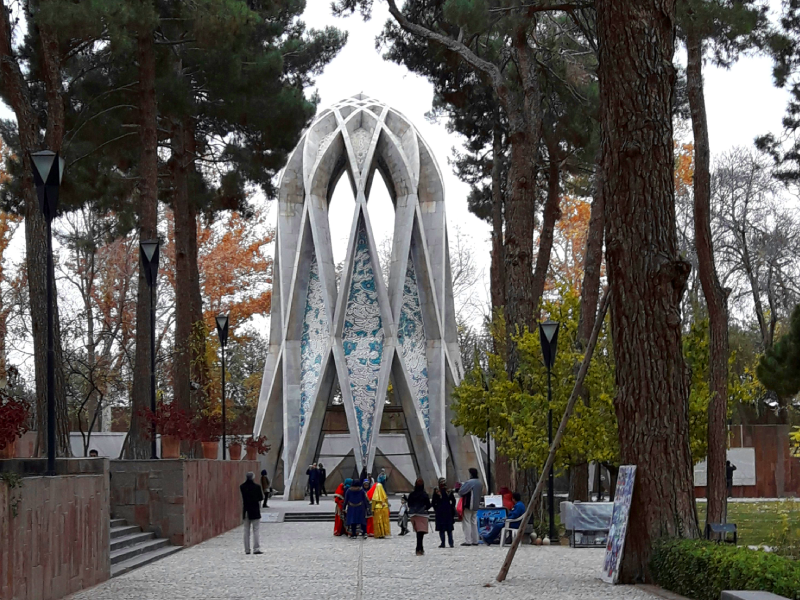
Mausoleum of Omar Khayyam Photos
Here’s one of Omar Khayyam poems, which is very famous and well-known in Iran:
But come with old Khayyam, and leave Lot
Of Kaikobad and Kaikhosru forgot:
Let Rustum lay about him as he will,
Or Hatim Tai cry Supper – heed them not.
Omar Khayyam Religion
Omar Khayyam, the renowned Persian polymath, was born into a Muslim family in Nishapur in the 11th century, during the Islamic Golden Age. While he was formally aligned with Islam and worked under Islamic rulers, his religious views remain a subject of debate among scholars. His scientific writings reflect a deep engagement with Islamic philosophy, yet his quatrains (rubaiyat) often reveal a more skeptical, even agnostic, tone—questioning fate, divine justice, and the afterlife.
Some interpret his poetry as mystical or Sufi-inspired, while others see it as indicative of a rationalist or even secular worldview. Ultimately, Khayyam’s religious identity is complex: publicly a Muslim scholar, privately a contemplative thinker who explored profound existential questions beyond orthodox boundaries.
Last Words
Khayyam’s influence extends beyond the realms of academia, resonating in popular culture and everyday life. Examining how Khayyam’s ideas remain relevant in contemporary society underscores the timelessness of his contributions.
Khayyam’s life, marked by brilliance in mathematics, poetry, and philosophy, remains a testament to the power of the human intellect. As we reflect on Khayyam’s contributions, it becomes evident that his impact transcends time, leaving an indelible mark on the world’s intellectual and cultural heritage. Visit Khayyam’s mausoleum in Nishapur and witness Iranian’s love for this 11th century-Persian-poet of Iran.
Are you planning to travel to Iran and looking for an Iran travel agency? Check out our Iran tours and feel free to contact us. If you are interested in Iranian poets, don’t miss reading our posts about Saadi Shirazi and Hafez.

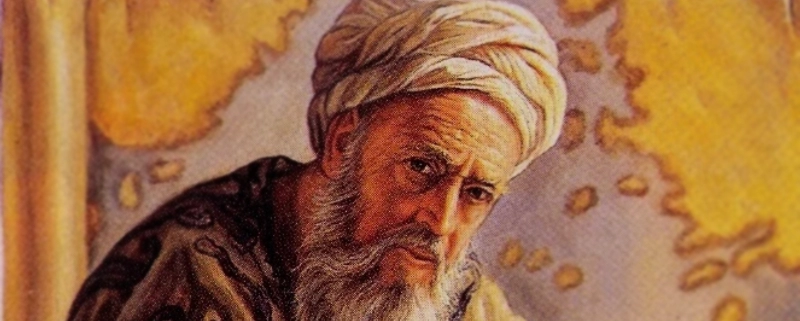
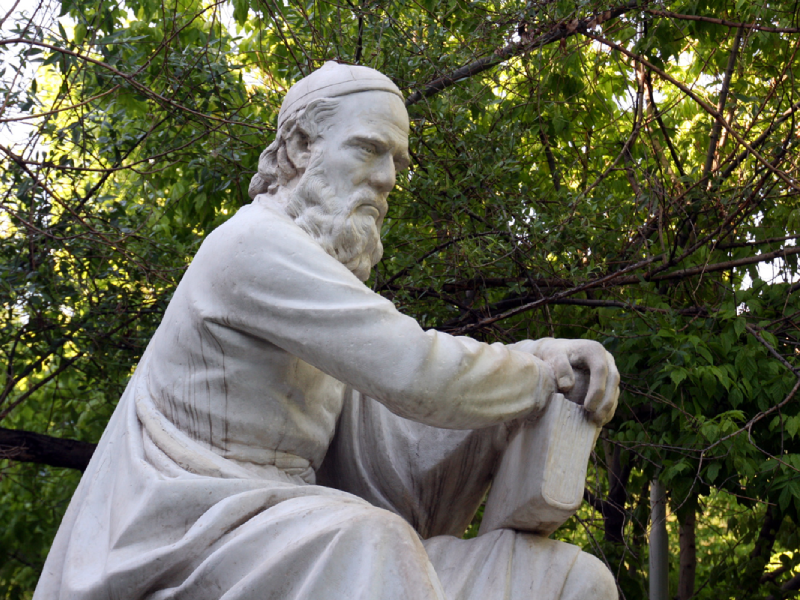
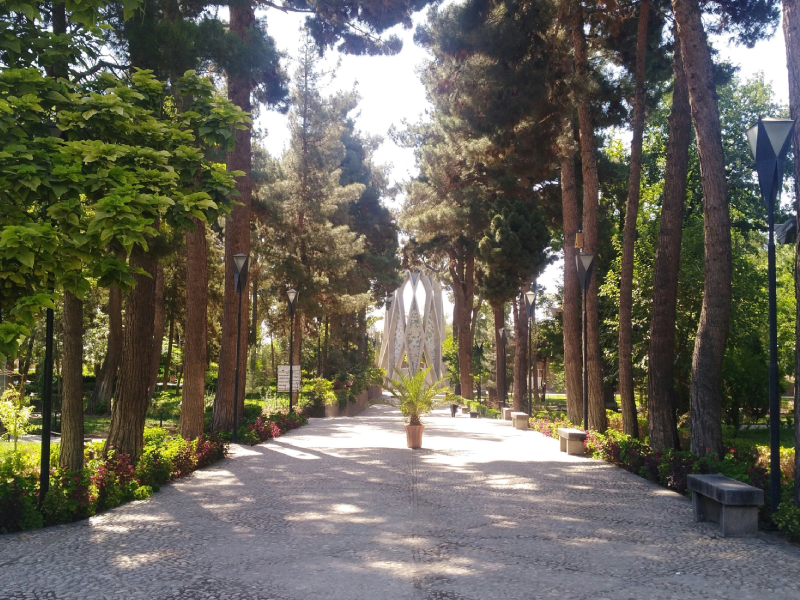
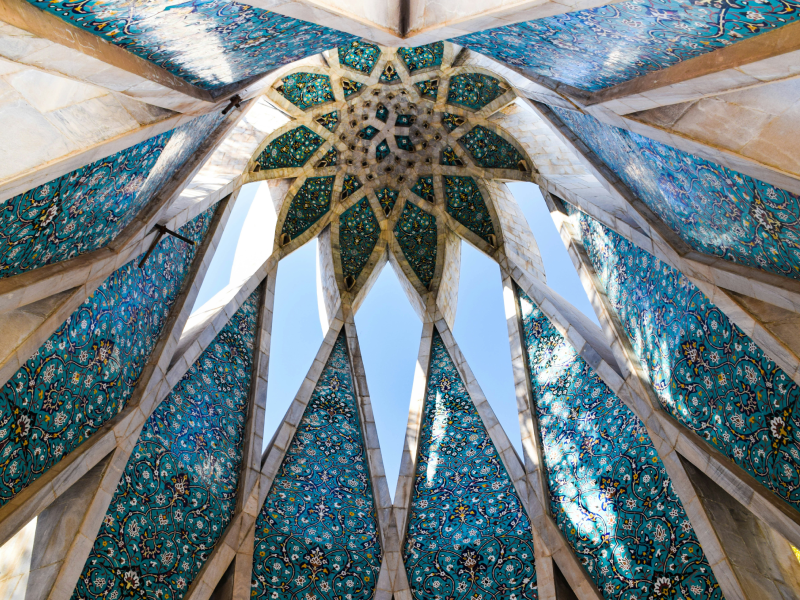

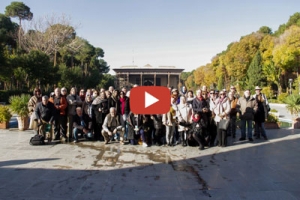


Leave a Reply
Want to join the discussion?Feel free to contribute!